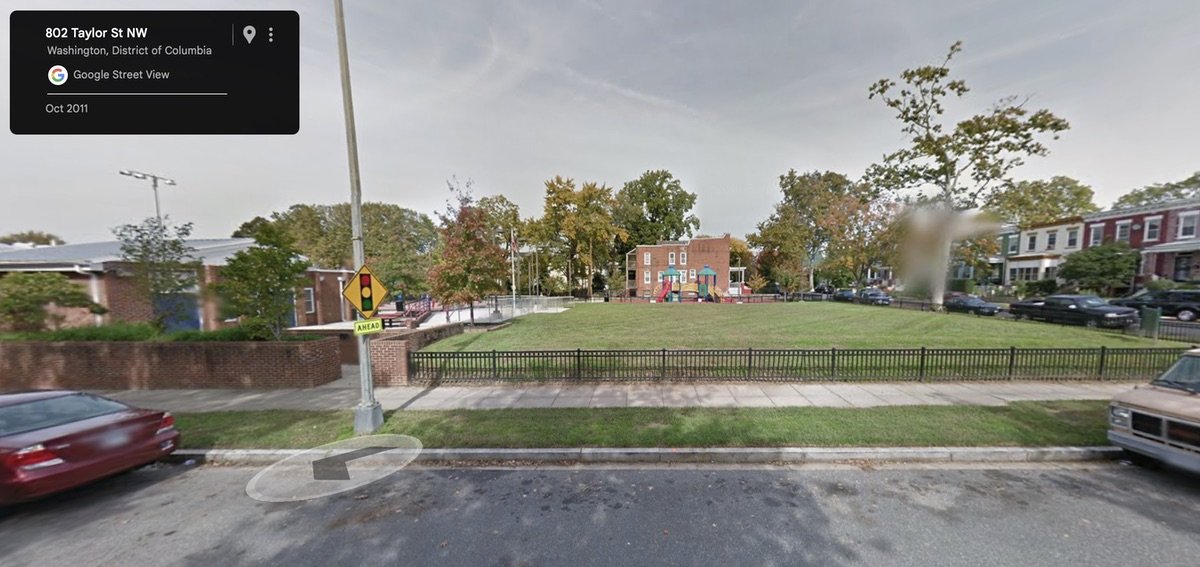After a half century in the trenches, popular DCPS administrator prepares for the retirement bell
/Ted Hinton greets a student during the last week of school, his last with the school system.
By Jim Arvantes
guest contributor
Ted Hinton, Jr. has spent 50 years with the District of Columbia Public School System (DCPS), serving as a teacher, an administrator, and overall mentor to thousands of students, parents and teachers who have come through the doors of the District’s school system.
In the last half century at DCPS, Hinton estimates he has touched the lives of more than 85,000 students, creating a lasting legacy of learning, self-improvement and success. And, now as Hinton, the Dean of Culture at Powell Bilingual Elementary School in Petworth, prepares to retire on August 4th, he is especially proud of the impact he has had on current and former students.
“Many of my students have gone on to be lawyers, doctors, police officers, teachers and so forth,” says Hinton, who has worked at Powell for about 10 years.
Hinton, a long-time resident of Petworth, often runs into his former students in the DC area, encounters that typically provide an affirmation of his enduring influence. Many of Hinton’s students keep in touch with the former math and science teacher well into adulthood, decades after he has taught and supervised them as students in some cases.
“Hinton leads with his heart,” says O’Kiyyah Lyons-Lucas, the principal at Powell. “He thinks with his heart and because of that people always know he cares about them.”
This is especially important for kids, says Lyons-Lucas.
“They know that he cares, and when they know you care, they rise to the occasion,” she explains. “He has set that standard for our students and our staff.”
Hinton is a strong proponent of positive reinforcement, using that philosophy to help students find direction in their lives.
“I tell them they can do whatever they want to in life,” says Hinton, a former principal and assistant principal. “I help them to think positive about life.”
When delivering that positive message, Hinton stresses the importance of “Believing in yourself.”
While providing encouragement, he also challenges students, asking children as young eight or nine years old what they want to be in life. The question has profound implications; even if a child is unable to answer the question, the youngster will start thinking about a career, an important first step. As Hinton explains, “You are never too young to think about what you want to be in your life.”
Hinton’s formula for success has remained steadfast during the past five decades. He tells students “they need to study hard and be focused in the classroom.” He also tells them, “that no matter what type of teacher you might have, get the best that he or she can give you.”
At the same time, says Lyons-Lucas, Hinton “sets high expectations for himself and the adults around him. Those expectations produce results for kids.”
One of Hinton’s greatest strengths is his ability to connect with students and their families in the school building, thereby “building and fortifying a positive culture,” says Lyons-Lucas.
“I am going to miss his ability to build relationships with students and families the most,” she says.
Ted Hinton accepts an award for his long service to Powell. O'Kiyyah Lyons-Lucas, the principal at Powell, stands to Hinton's right.
Life-Altering Decisions
Hinton, like many others, believes life is all about choices. He has never regretted going into education.
“If I had to do it all over again, I would still be in education,” he says.
Hinton was born in Apex, North Carolina, and raised on a farm near Raleigh. As a teenager, he dreamed of going to medical school and becoming a doctor. But after realizing that he enjoyed working with children, he opted for a career in education.
He graduated from Tuskegee University in Tuskegee, Alabama in 1968 with a degree in biology/chemistry, and went to work as a science and math teacher at Taft Junior High School in the fall of 1968. In 1981, he left Taft to teach math and science at Watkins Elementary and then at Hart Junior High from 1984 to 1987.
In 1987, he left the classroom to serve as an assistant principal at the former Hine Junior High, staying there 10 years. He became a principal for the first time at the former Patricia Robert Harris Educational Campus and in subsequent years, he served as a principal at Bruce-Monroe Elementary, Tyler Elementary, Hamilton Junior High and MacFarland Middle School.
“Early on, I enjoyed being a teacher, but I got burned out as a teacher,” says Hinton, who earned a Master of Art in Urban Studies from George Washington University in 1975. “I loved being an administrator – a principal of a school. I had a good rapport with the teachers, students and staff.”
In 2009, he took a job as a mentor principal at Powell, eventually becoming the school’s Dean of Culture, akin to the Dean of Students.
Now at the age of 72 and after five decades with the DCPS, Hinton says the time has come to retire.
“It is hard to believe 50 years have gone by,” says Hinton. “It doesn’t feel like 50 years because I enjoyed what I have been doing and working with kids has kept me youthful.”
Hinton is open to working for the DCPS as a consultant during retirement, and he is thinking of starting a scholarship program to help students pay for college.
Praise, and some criticism, of DCPS
As a 50 year veteran of DCPS, Hinton has perspectives and insights that few other DCPS employees share. When assessing DCPS, Hinton says the school system has made tremendous strides during the past five decades, and as proof, he cites improvements in student math and reading scores.
The school system has also embarked on a building moderation program, which has vastly improved the school system’s infrastructure.
“We have some of the best schools in the country in terms of infrastructure,” he says.
In addition, Hinton praises the school system’s current curriculum, saying it is more creative now than in years past, making it easier for students “to think outside of the box” and to become “critical thinkers.” And he is convinced that students are more focused today than they were a decade ago, a direct result of the emphasis placed on early education during the past several years.
But there are areas where he believes improvement is needed. The level of parental involvement was much greater years ago than it is today, and that lack of parental involvement creates breakdowns in student learning, according to Hinton.
He also says DCPS needs to put reading and math specialists in every school to help new teachers teach these subjects. “In the past, you had people in your building who were (math and reading) specialists,” he says.
Hinton also calls on the DCPS to reintroduce trade schools, which gave non-college bound students a chance to learn marketable skills and earn a living. “When I started, we had barber, beautician and nursing assistant schools,” he says. “We need to bring those back.”
As a 50-year-employee, Hinton has worked under several school chancellors. Years ago, chancellors stayed for about four years, giving teachers and administrators an opportunity to turn failing schools around. That continuity no longer exists, he says.
As his retirement rapidly approaches, Hinton said he plans to travel and spend more time with his daughter and granddaughter. He said he knows a part of his life – what he refers to as his “life-long journey”— is coming to an end.
In the meantime, Powell Principal Lyons-Lucas refuses to say goodbye.
“I don’t believe it is goodbye,” she says. “He knows the door is always open. He is an honorary (Powell) Panther, and he will always have a place in the building and in our hearts.”
Jim Arvantes is a freelance writer and photographer who lives in Washington, DC. A graduate of Boston’s University College of Communication, Jim primarily writes about health care, education and local community issues. He also works as a substitute teacher in the District of Columbia Public School System and teaches English as a Second Language on a part-time basis. He can be reached via email.



















